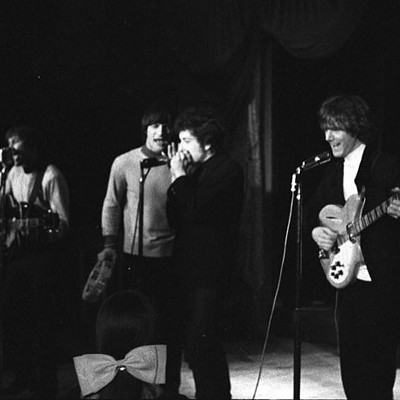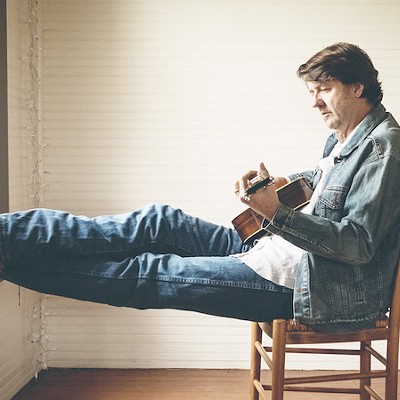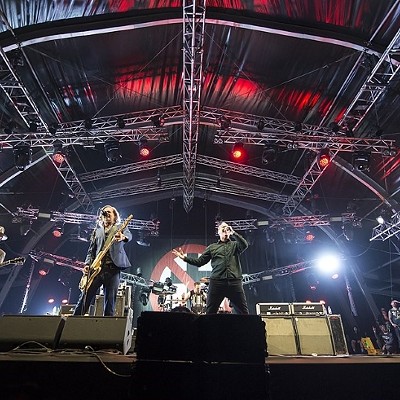Black History Month is always a great time to recall some of Houston's greatest musical innovators and leaders. Rocks Off will highlight some of them during the remainder of February.
At a local blues jam recently, Rocks Off was accosted by an irate informal media critic who wanted to know when we members of the working music press were going to have balls enough to tell the world rock and roll began in Houston. She was one of those passionate people you meet out and about in the course of everyday rat-killing - an avid supporter of the music scene, and no less annoying for that fact. Ironically, shortly thereafter, we became intrigued by two virtually unknown Houston women who helped shape the emerging face of rock and roll and rhythm and blues music. The first, Lola Anne Cullum, discovered not only boogie-woogie piano giant Amos Milburn, one of the fathers of rock and roll, but later also took Lightnin' Hopkins under her wing.
On the other hand, Lela Macy of Macy's Recordings was a Houston woman who, somewhat inadvertently, got in on the ground floor of zydeco, a hybrid style that coalesced in and around Houston and was first recorded here.
Both of these women - Cullum (???-1970) and Lela Macy Henry (1912-1991) are so obscure that, in spite of their important accomplishments and cultural contributions, we could not find photos on the Internet of either. The sad fact is that, except for scant mentions in various blues histories, these women have vanished except in the memories of a few old-timers like "Texas" Johnny Brown. Local music historian Dr. Roger Wood emailed the following off-the-cuff recollections about Lola Anne Cullum to us:
Apart from the limited information that has been published about Lola Anne Cullum, my main source on her is the venerable local blues man "Texas" Johnny Brown. And he leaves no doubt Mrs. Cullum had a behind-the-scenes but huge impact on blues history. Johnny describes Mrs. Cullum - and it is always 'Mrs.' in his recollections of her - as a stylish, sophisticated African-American woman who was married to a prominent dentist. The Cullums were part of the educated upper-class of successful black professionals in 1940s-era Houston, which was not inconsiderable. By the end of World War II, the independent recording industry was really taking off, and some formerly obscure regional blues and early R&B performers were suddenly thrust into national consciousness - at least the national black consciousness at the time -because some talent scout hooked them up with an upstart label. In the case of Texas blues icons Lightnin' Hopkins (as well as his original recording partner Thunder Smith) and the great boogie pianist and singer Amos Milburn, Mrs. Cullum was that person. She was aware of the burgeoning music business nationwide, as well as the unmined talent performing in Fifth Ward and Third Ward venues. As a freelance talent scout for the Los Angeles-based Aladdin Records, she brought the label its two biggest stars, Lightnin' and Amos. She also served in a kind of managerial capacity as they launched the major phase of their careers.According to Wood, Texas Johnny Brown, who played guitar in Amos Milburn's road band during the Aladdin years, actually had his nickname bestowed on him by Cullum to help distinguish the bluesman - who was actually born in Mississippi - from another singer on the circuit called Johnny Brown. British historian Mike Leadbitter tracked Mrs. Cullum down for a 1967 interview at her husband's office on Alabama Street. From him, we learn that Mrs. Cullum was born in Weimar, Tex., and had begun to take an interest in the local music scene as early as 1940, when she and her husband successfully lobbied radio station KPRC to begin to support local acts rather than feed the listening public a steady diet of nothing but national recording acts.
Of course, 1946 was the year she began to make scratch recordings of local musicians, sifting through talent in the Third and Fifth Wards in search of commercially viable artists. Shortly after her success getting Amos Milburn signed to Aladdin Records in Los Angeles, she met Lightnin' Hopkins and his partner, Thunder Smith, and actually drove them to Los Angeles in her car for their first Aladdin sessions.





